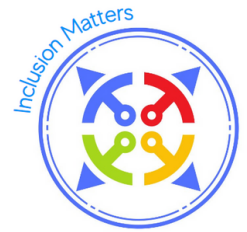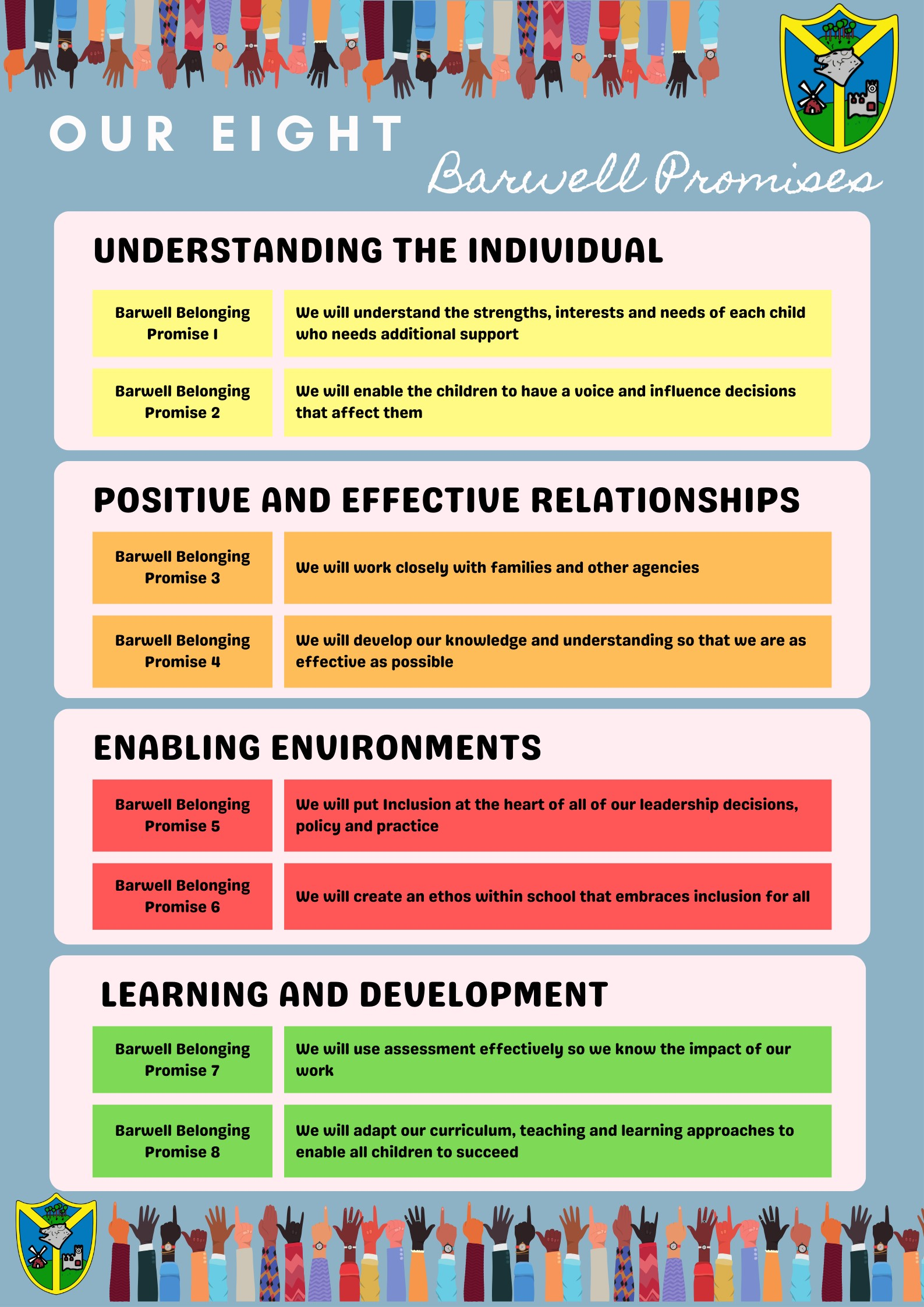Commitment 3


Inclusion Matters to us in our school. Children, families and staff need to feel that they have a place in our school and that Everyone is Welcome. We need to be vigilant and unrelenting in our pursuit to remove barriers to success for everyone and understand who is more vulnerable to underachieving because of their characteristics or circumstance. However, we need to take a global approach to inclusion and follow UNESCO’s principles of focusing on inclusivity as a whole. If we place the emphasis on transforming existing systems to become inclusive, rather than working on how to integrate those who are in danger of being marginalised, excluded or underachieving, we can build towards an equitable future for all.
It is important that we are open about our values and that they are not only on display on the walls but in our everyday interactions. We want people who visit our school, for whatever reason, to walk away feeling loved and seen for who they are. In order to do this, we need to be explicit in our core values of inclusion and ensure that all decisions made have inclusivity at their heart. Our Everyone’s Welcome approach, through our Wellness Journey and Learning Adventure is key to this work and we need to continually work on developing this approach. Our approach to developing the whole person, in mind, body and spirit, will ensure that we are developing the whole individual and not sacrificing some elements in favour of others. We need an unrelenting focus on our behaviour and culture with the highest expectations for all. Our understanding of Inclusion, by developing our knowledge and understanding, will help to develop our practices and procedures and support from outside agencies will further this still. Looking for opportunities to develop the individual knowledge and skills of staff through our Staff Expedition will allow for us to continue to develop as well as providing them with a sense of ownership and personal achievement.
At times, individuals will need more than just a focus on inclusivity as a whole so we need to be proactive in uncovering potential barriers and how to help people overcome them. We need to ask ourselves who are the most vulnerable members of our Barwell Family and then, in turn, how can we support them to the fullest. Having a senior member of staff who is responsible for Vulnerable Groups will allow this focus to persist and be unclouded as well as building up support networks within school.
It is important to have a really strong safeguarding team that manages the day to day aspects of safeguarding but also to have a strategic direction to see the larger picture. We need to ensure that we have strong procedures to support individuals with low attendance. We need a strong Pupil Premium strategy that clearly identifies the barriers and has long term plans to enable all children and families to flourish. We need a clear intervention strategy that identifies children as early as possible to provide the academic support they need and to use assessment cleverly to ensure that interventions are effective. We need a strong pastoral team who support children with their social and emotional needs where these needs extend beyond the normal expected responses. Our SEND provision needs to be well led and develop the knowledge and skills of the whole school team with clear, transparent procedures in place to work quickly and efficiently to respond to needs and work with outside agencies. They also need a strong voice to advocate for those who may not have the voice they need. We need to raise the aspirations of a whole community so that they want better for themselves and for their neighbours. We need to challenge stereotypes wherever they are presented and model a different way.
Individuals could be vulnerable for many reasons and we need to be able to adapt to changing situations. However, there are some common groups within our school who could be identified as potentially being vulnerable. It is worth remembering however, that just because an individual belongs to a group, for example, being in receipt of Free School Meals, their personal circumstances will all be different. Below is a list of groups that may contain vulnerable individuals:
- Individuals who have safeguarding needs – the list in the safeguarding section clarifies this further
- Individuals whose attendance is low
- Individuals who are have FSMs, PP or are financially in difficulty
- Individuals who are underachieving academically – this may be based on prior attainment or current attainment at all levels of the spectrum
- Individuals who struggle to regulate their emotions or behave in unexpected ways
- Individuals who have a Special Educational Need or a disability
- Individuals who have low aspirations for themselves or those around them
- Individuals not achieving as well in academic areas because of a gender bias
Our Barwell Belonging Promises (see below) set out how we will work with individuals to enable them to progress if they have additional needs.

